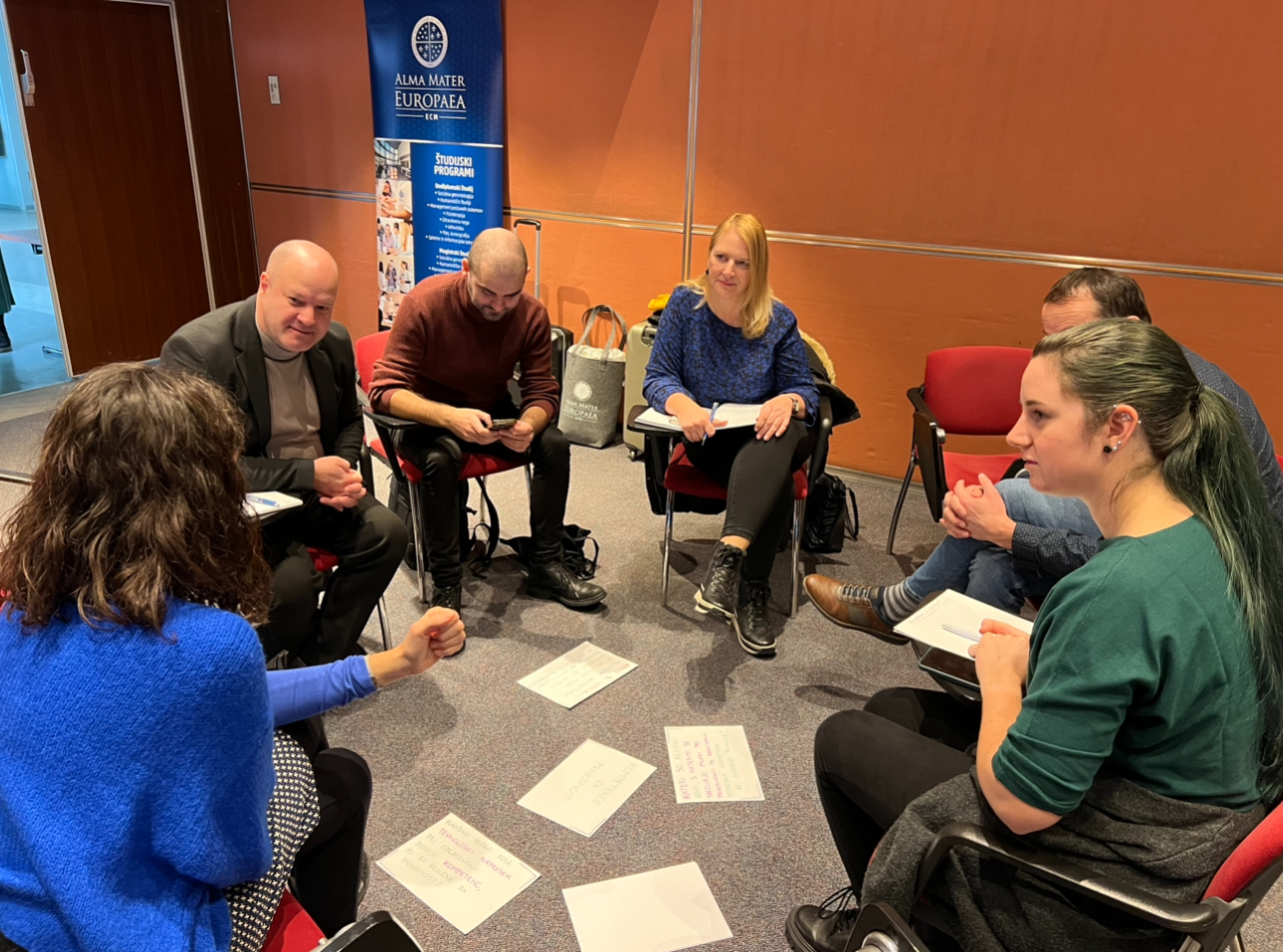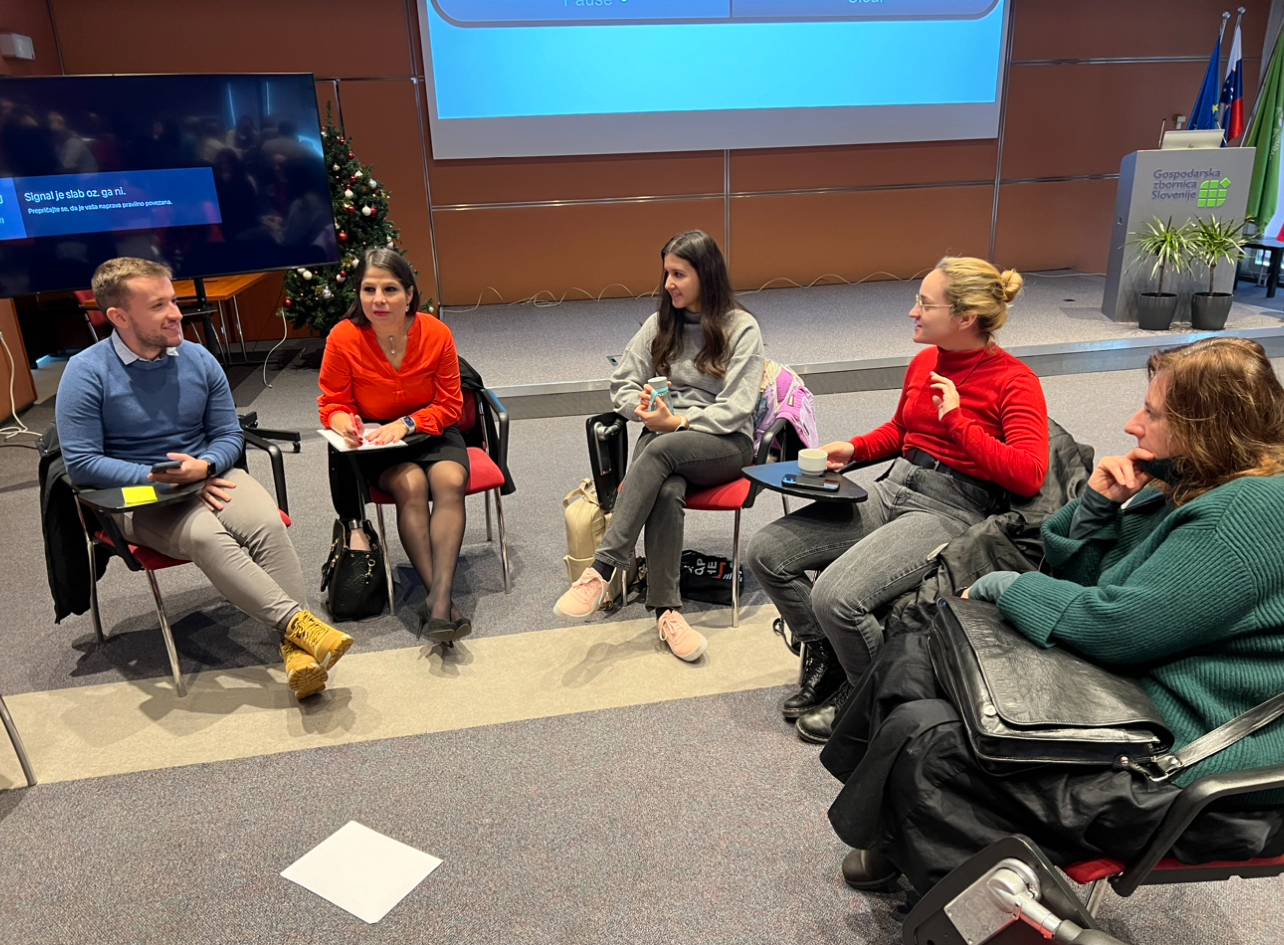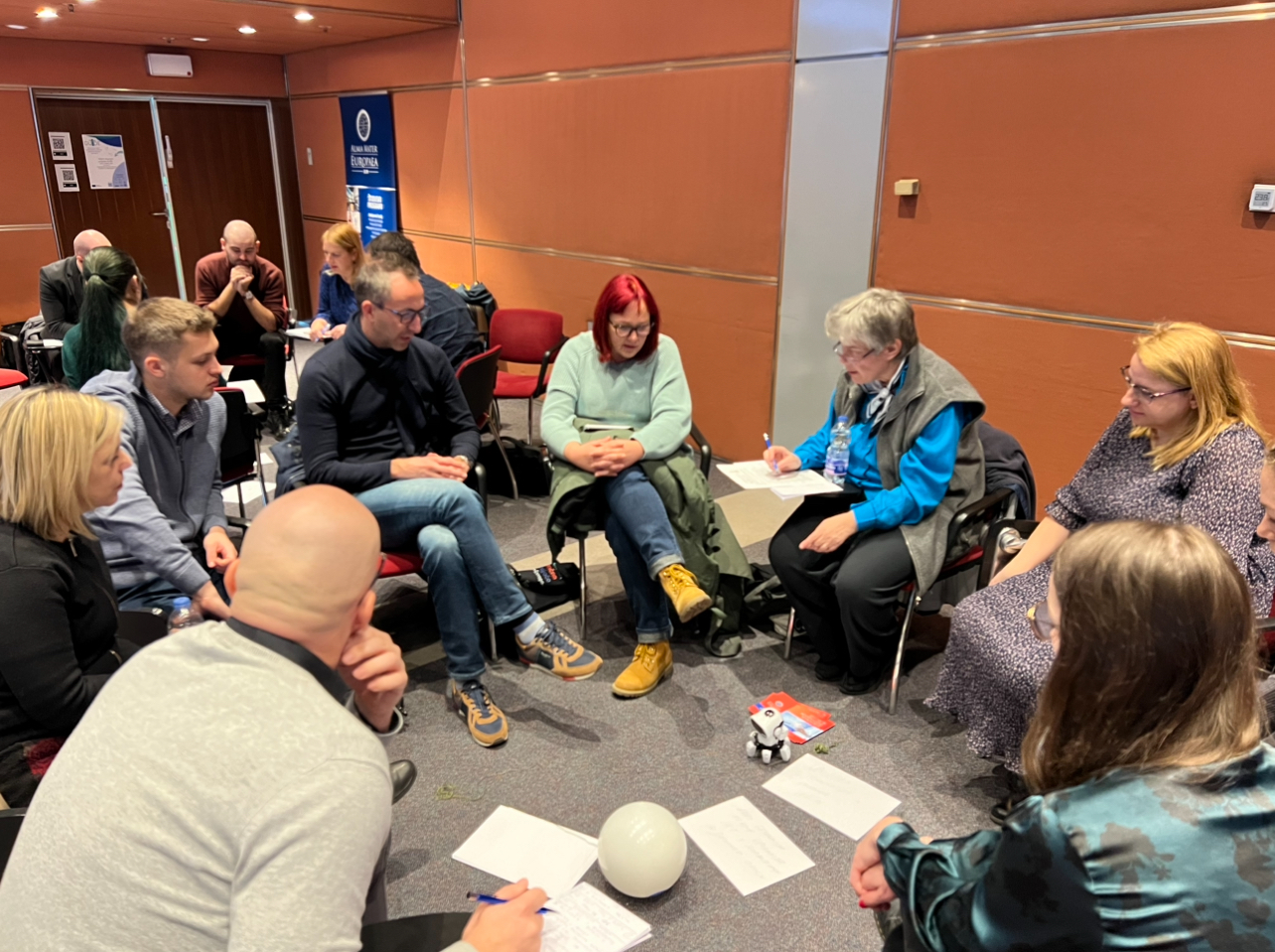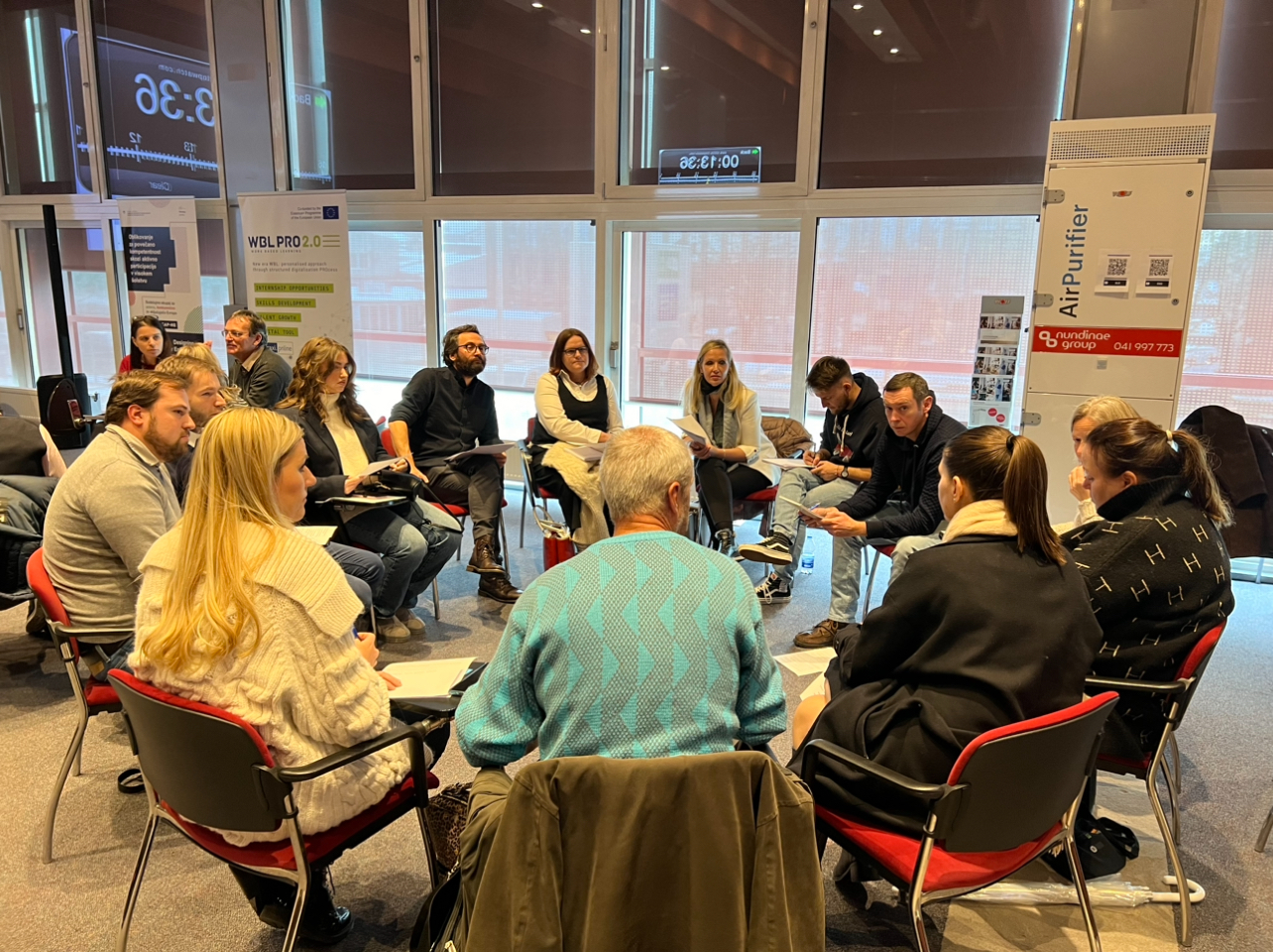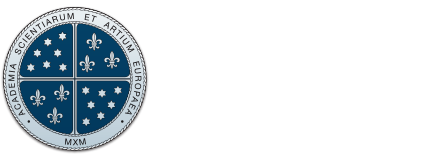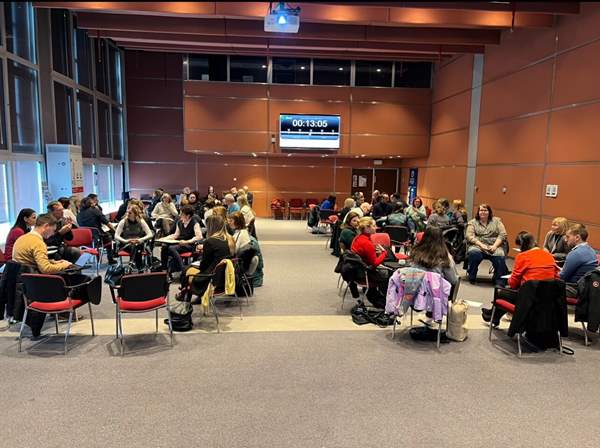
World Café: Dialogue between generations
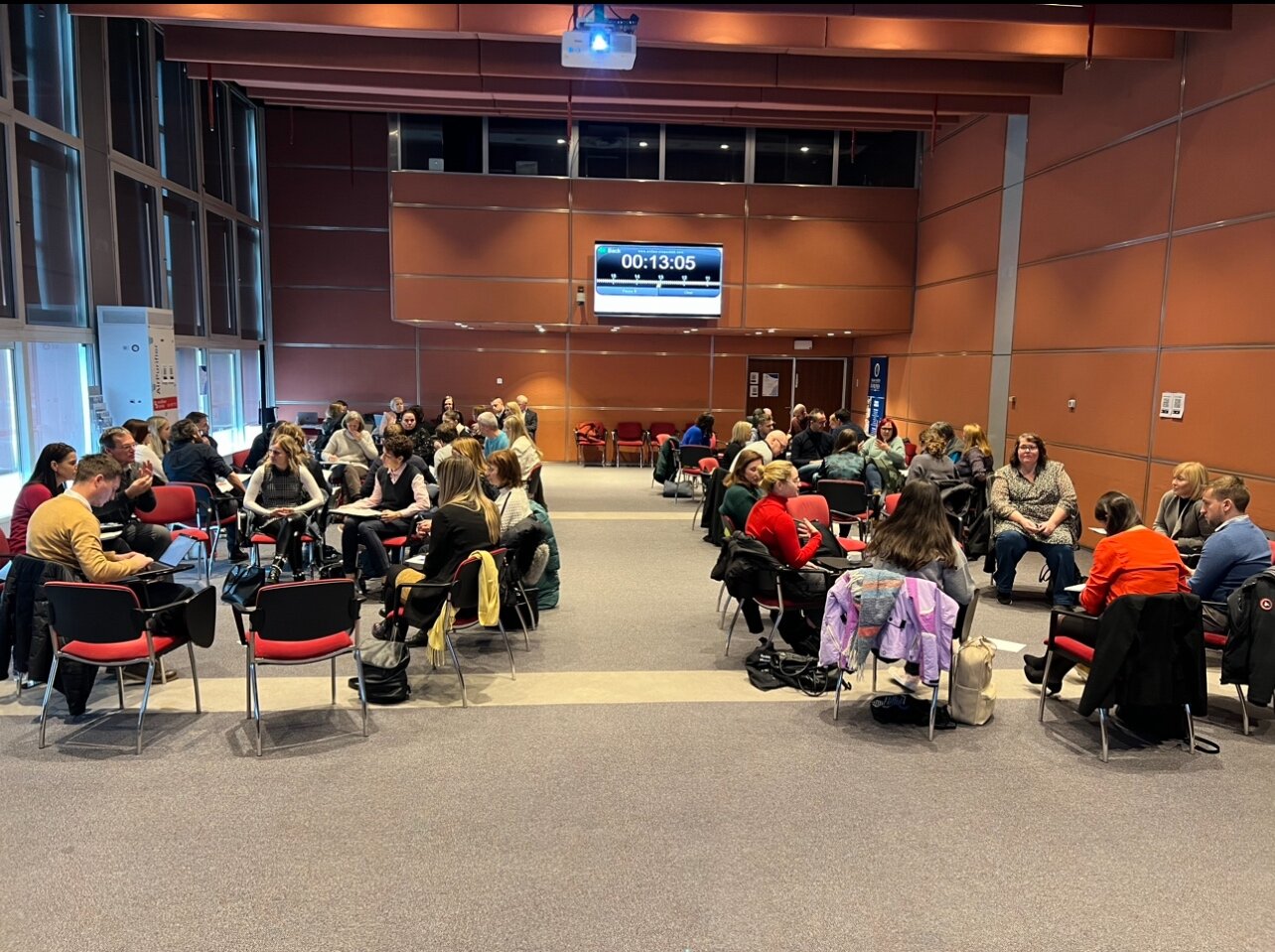
Alma Mater organized an insightful discussion using the World Café method as part of the DECAP-HE project. The emphasis was on explaining the challenges and opportunities that today's young generation faces when entering the dynamic environment of the labor market.
Vesna Miloševič Zupančič, an expert manager of the e-Student Service, introduced the secrets of Generation Z in the labor market and how to attract, understand, inspire, and motivate them. "Generation Z is a bit different from previous ones, which is understandable because their phones and computers were practically placed in the cradle. They already seek to gain relevant work experience through internships and student work. They are searching for jobs related to their course of study, which offer essential competencies and knowledge and lead to regular employment. Upon initial engagement, they expect flexibility, hybrid work options, a clear progression plan, and career growth from their employers. They also desire acceptance and being heard and require feedback, induction, and mentoring. Young people prioritize fair pay, work-life balance, care about environmental issues, and are concerned about mental health.«
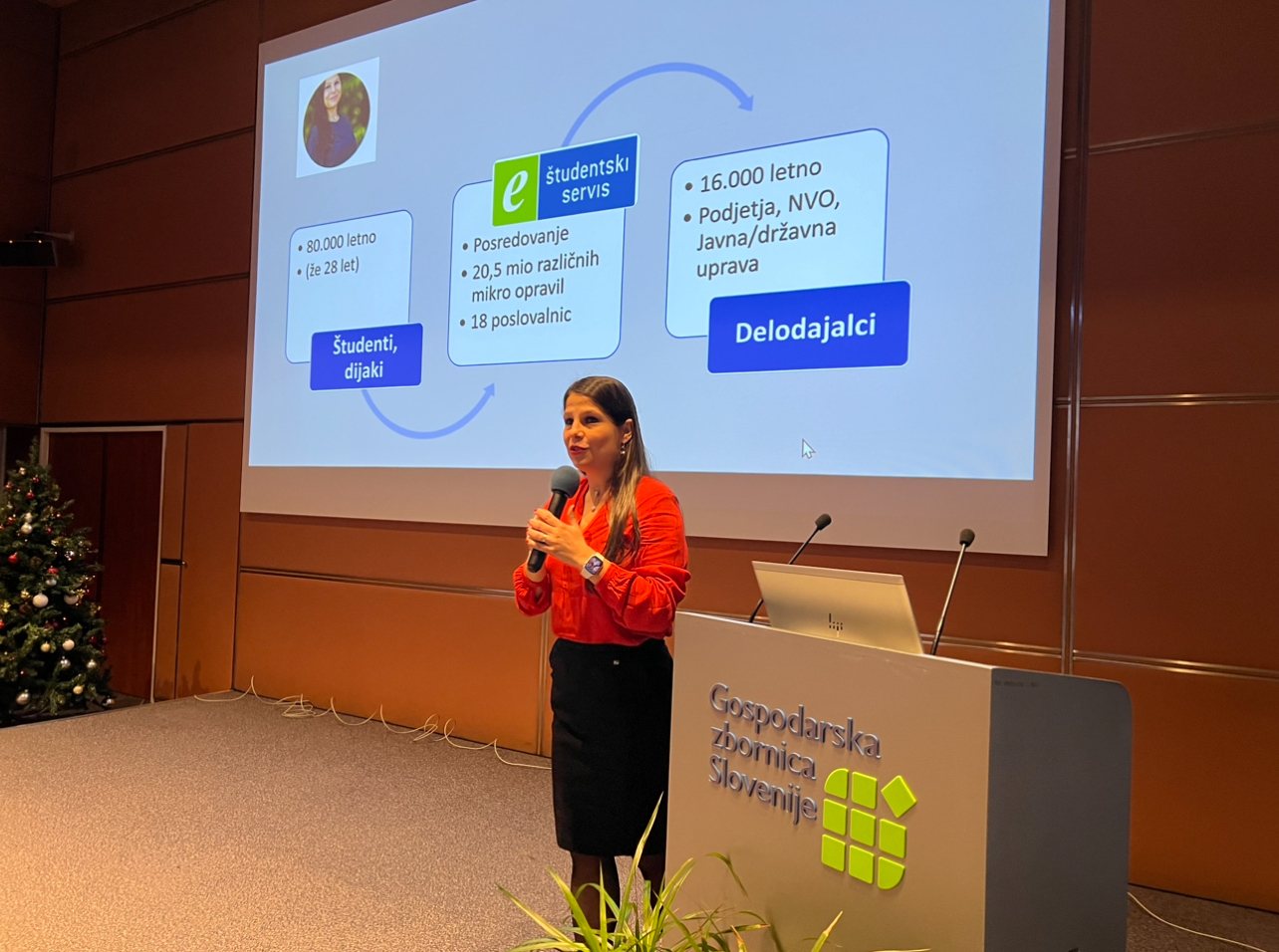
After the introductory lecture, the participants were divided into smaller groups or desks. The participants alternated between individual tables while the table leaders remained, which enabled sharing, building on, and synthesizing different perspectives and ideas. The topics of discussion were:
• Values of young people,
• Ways of learning for adolescents,
• Development of global competences,
• Integration into the work sphere,
• Competences for the future,
• Use of technology and digital skills.
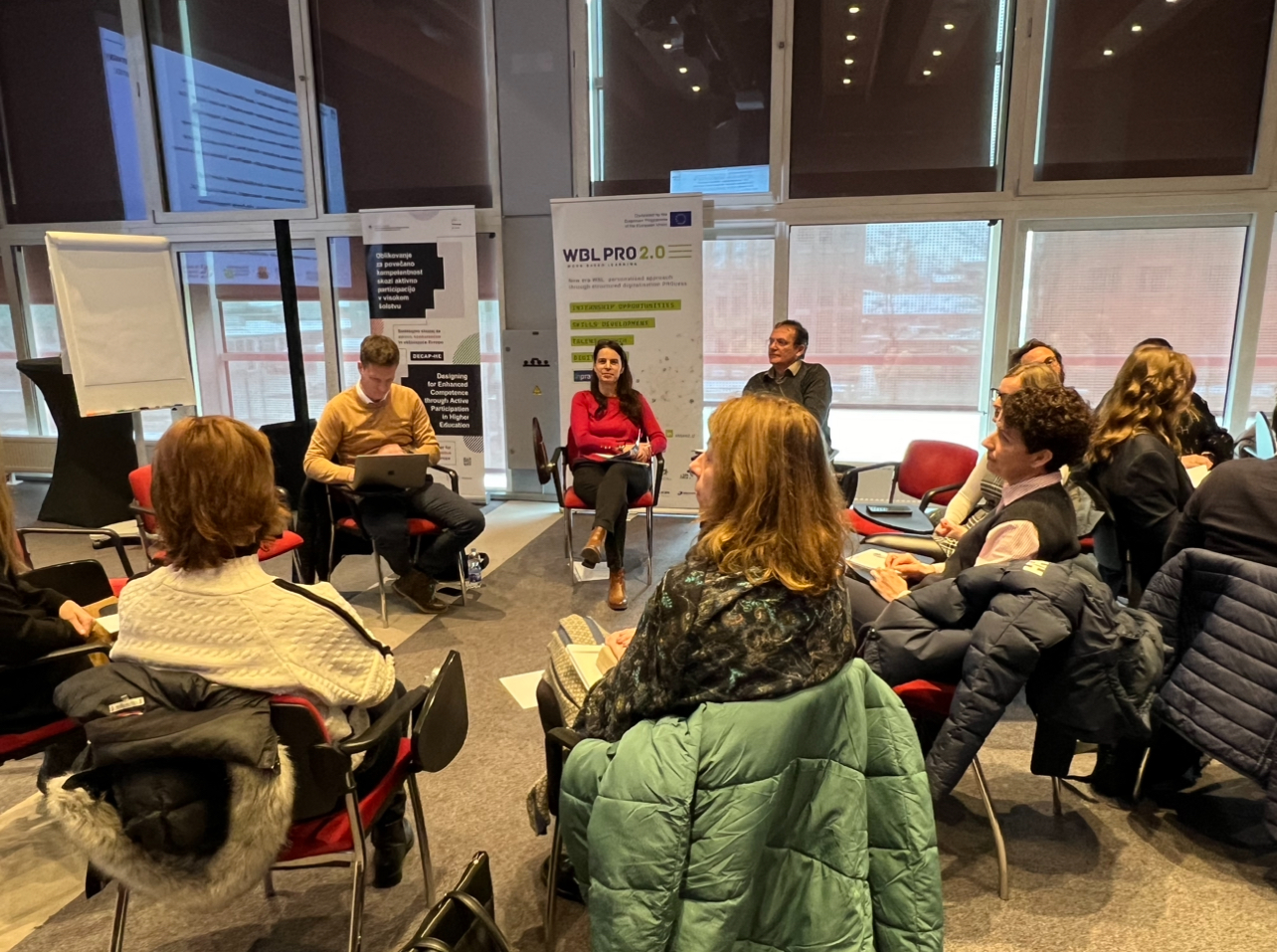
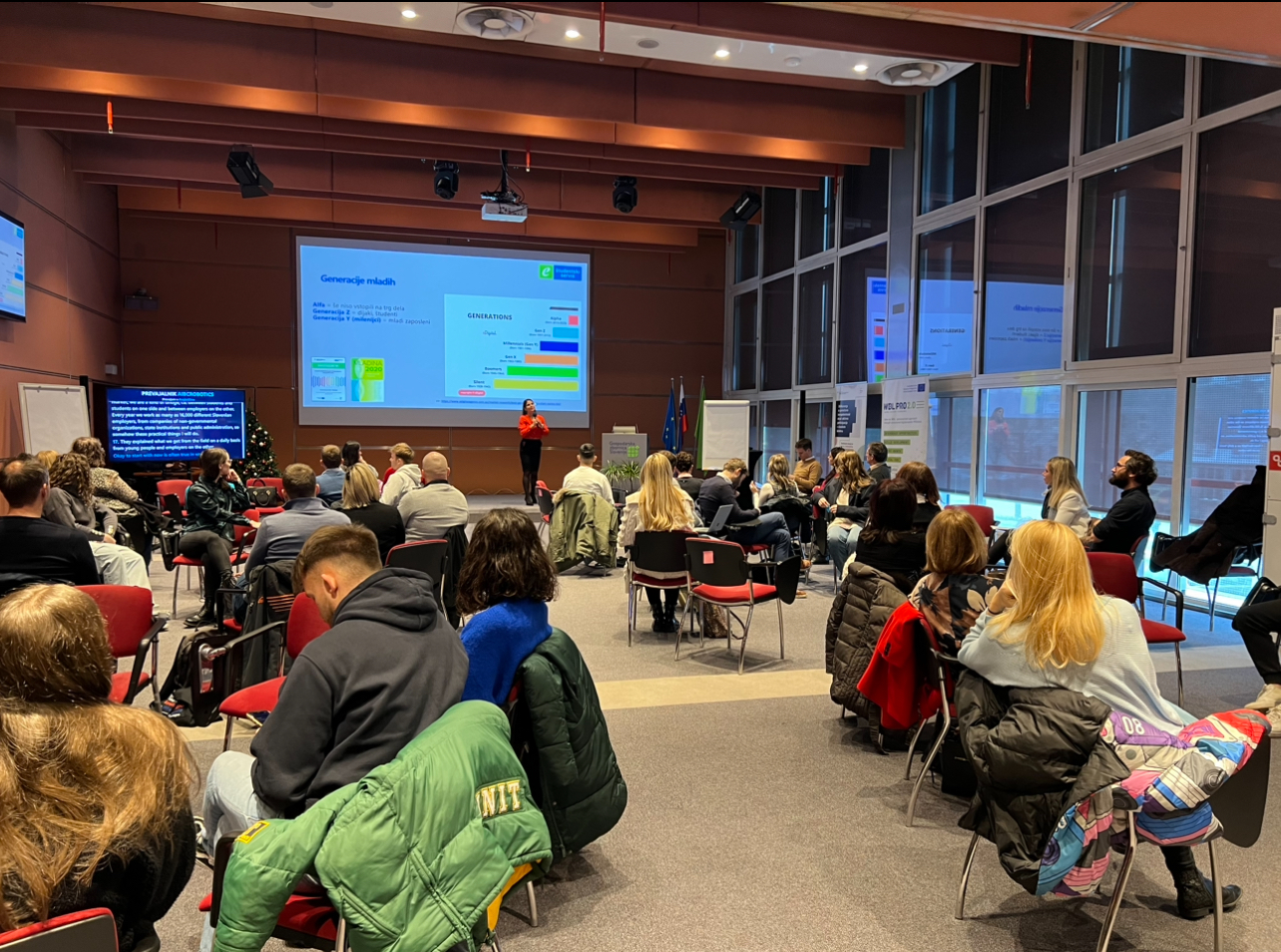
The participants agreed that today's generation of young people needs more belonging. Some are self-centered, while others have a highly developed sense of people. A lack of etiquette and respect for authority also prevails.
Students are more committed to an in-depth approach to learning if the teacher knows how to involve them actively. Young people are looking for stability, the possibility of advancement, and innovative work. They want to be included, heard, and considered.
The industry seeks general competencies, teamwork, and social and communication skills, not just an education paper. Critical thinking, emotional intelligence, and global competencies are essential, defined as a mix of knowledge, skills, attitudes, and values individuals need to function successfully in a worldwide community.
The interlocutors also see problems in the education system's inflexibility and the students' need for self-initiative. There needs to be more contact between faculties and companies, which entrepreneurs also know.
